Uganda needs USD 17.3 billion to buy land for the poor
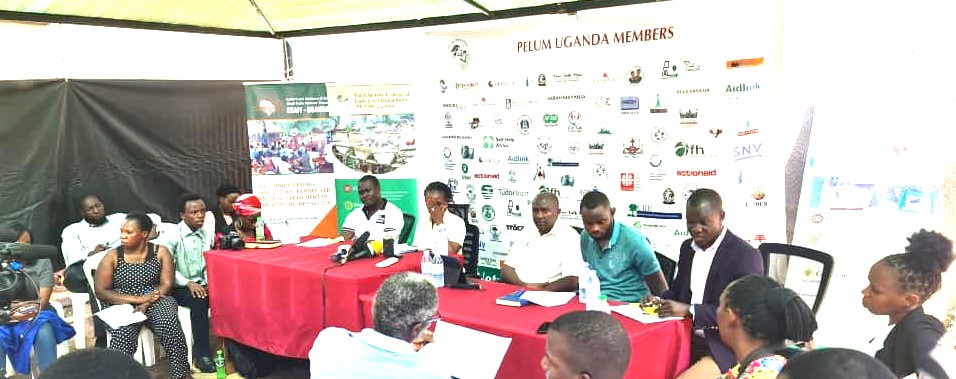
Uganda’s ministry of lands and housing estimates that its land fund will require about UGX 67 trillion – USD 17.3 billion at current exchange rates- to eliminate the multiple rights menace, which bedevil its land tenure system, and is often a source of conflict between well-resources claimants and vulnerable occupants.
The staggering figures were revealed to the press by Mr Dennis Obbo, the spokesperson for the ministry of lands and housing, during an event to launch the 6th edition of the Land Awareness Week (Law), which opens in Rukungiri, South Western Uganda, today.
Obbo said the money, almost one and a half times the size of Uganda’s budget for the current fiscal year, would be used to buy out land owners and transfer the registrable interest to tenants, commonly known as Bibanja holders, as well third-party licensees.
“It has been seen that when people invest on land land without titles, there’s always a fear that those investments may in future be affected by either illegal evictions or threatened eviction. So, the best way, is to protect such pieces of land by registration,” Obbo said adding that the government was also considering a soft-loan scheme through which non-registered occupants of land, could obtain tittles to it.
This year’s LAW, which will run under the theme “Promoting land rights for inclusive and sustainable development, is headlined by Participatory Ecological Land Use Management – PELUM- a collective of 66 civil society actors spread across 122 districts in Uganda; is expected to shine the torch and create awareness on land issues pertinent to the four districts of Kabale, Rubanda, Rukiga and Kisoro in South-western Uganda, says Pelum Uganda Country Coordinator Ms Josephine Luyimbazi Akia.
Discussions and engagements at community, district and national level, will focus on land rights in the region and those affecting indigenous communities, specific to the Batwa, a community of mountain forest dwellers, who were forced out of their traditional habitats three decades ago.
“We are doing this to raise awareness on the formal and customary land aspects, land administration and also having the involvement of other civil stakeholder actors for effective engagement in land governance,” explained Akia adding.
“The aim is to strengthen the capacity of farming communities particularly women, men, the youth and persons with disabilities and other vulnerable groups, especially the indigenous communities,” she added.
According to PELUM, land is a pertinent issue that touches on the capacity of communities to address food insecurity, as well as the ability of different categories of people such as, men women youth and persons with disabilities including the indigenous communities, to have to have a fair share of access to land rights. Such access can have positive impacts such as increase production and productivity.
“The LAW will also provide a strategic platform for discussion of issues to inform policy reviews relating to the national land policy 2013, the land act caption 227, the land acquisition act 1965 and the physical planning act 2020, among others,” Akia said.
The event will also will also be used to document community voices within the target districts and consolidate them into the land awareness 2022 memorandum of understanding
Anticipated activities include a district and national level planning meeting, community sensitization and dialogues on land rights, laws and environmental conservation. A mobile legal clinic will provide a platform for communities to interface with lawyers who will help them address issues affecting them.
A petition by the Batwa special interest group will be presented to the guest of honor, the minister for lands housing Ms Judith Nabakooba, who will also hand over 1539 freehold titles to people in Rwampara, Mbarara, Kiruhuura, Ibanda and Kabale districts.
“Land weeks are important in providing a platform for citizens get knowledge and information regarding their land rights and land obligations,” Obbo said of the event adding that there was a big outcry in the country either because citizens don’t have legal documentation about the land they are occupying, or they don’t know where to find help in case of threats of eviction.
About 70pc of land in Uganda is customary and most of it is not registered. The ministry of lands has been trying to organize communities into legal entities that can then be given certificates of customary ownership.
Just last week, the ministry was able to issue certificates of customary ownership to the Tepeth, Pian and Pokot indigenous communities in Karamoja. The Benet in Mountain Elgon have also secured to their customary land, Obbo revealed.
Similar efforts to register the interests of the 43communities of Batwa in the land on which they have been resettled, have stalled because they are yet to set up and register community trusts.

 100+ Accelerator selects Ugandan startup Yo-Waste to pilot glass recycling at Nile Breweries
100+ Accelerator selects Ugandan startup Yo-Waste to pilot glass recycling at Nile Breweries
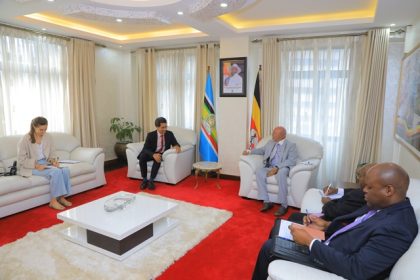 With eyes on oil and gas, France pledges USD 3 billion investment in Uganda
With eyes on oil and gas, France pledges USD 3 billion investment in Uganda
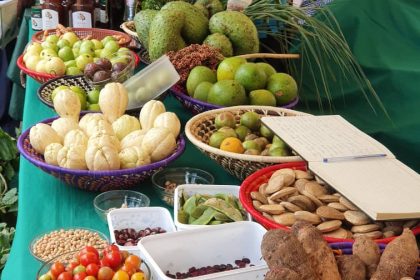 Uganda urged to pitch for organic produce during NAM Summit
Uganda urged to pitch for organic produce during NAM Summit
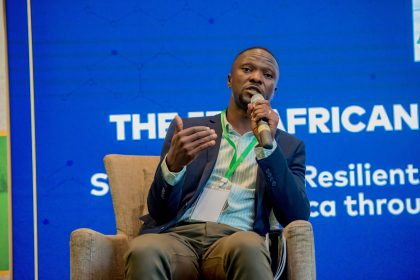 NOGAMU’s Namuwoza tapped to lead bid for increased intra-African trade in organics
NOGAMU’s Namuwoza tapped to lead bid for increased intra-African trade in organics
 From 3 padlocks to a click: Sipi Organic’s long walk to digital banking
From 3 padlocks to a click: Sipi Organic’s long walk to digital banking
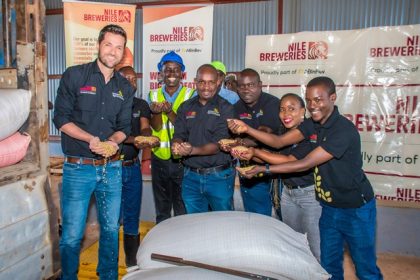 Nile Breweries launches UGX 4Bn barley processing facility in Kween district
Nile Breweries launches UGX 4Bn barley processing facility in Kween district
